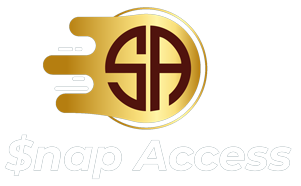- Nobel Laureate Paul Krugman warns that President Trump’s unpredictable and often reversed tariff policies are creating deep uncertainty, discouraging business investment and thus increasing the risk of recession. While concerns about inflation exist, Krugman emphasizes that the greater threat lies in declining investment in trade-sensitive sectors due to the lack of stability in U.S. foreign policy.
If there’s one thing investors don’t like it’s uncertainty, and President Trump’s ever-evolving stance on tariffs is not helping matters.
Investors have no way to shield themselves from the impact of the White House’s foreign policy decisions, said Nobel Laureate Paul Krugman, adding the political system offers no safety net to prevent extreme proposals.
“The secret sauce of the Trump tariffs is that they are extremely uncertain,” Krugman told the Goldman Sachs ‘Exchanges’ podcast earlier this week. “Nobody knows what they will be. Nobody knows what comes next. Now, if you’re a business trying to make plans, would you want to invest under those conditions?”
He added: “An unpredictable tariff rate that can change the next day is really a depressing effect on demand. And that’s clear for business investment, but it also affects consumers. It affects home builders. So the uncertainty is the reason why a recession seems likely.”
11th hour U-turns
President Trump has developed a habit for eleventh-hour reprieve when it comes to foreign policy.
The precedent was set with Mexico and Canada, when early in his term he announced economic sanctions on the neighboring nations in a bid to stem the flow of drugs into the U.S. and tighten immigration.
These tariffs were then paused before going into effect a month later.
The story was similar with the tariffs announced on ‘Liberation Day’ which included hikes for specific, major trading partners, including a 20% increase on the European Union, 24% on Japan and 26% on India.
A week later the Oval Office announced a 90-day pause on the sweeping policy—which included a 10% blanket duty raise on all other nations—for every country except China, which had responded with retaliatory action and as such now faces an 145% duty on exports to America.
It could be argued that by announcing the pause, President Trump acted on the appeals of analysts begging him not to spark a global trade war and potentially implode the stock market.
Conversely, a flip-flopping routine on major foreign policy doesn’t do much to bolster confidence in Trump’s administration—putting the Oval Office in something of a lose-lose situation.
Krugman said: “In some ways I almost think that the policy reversals, to the extent they happen…make it worse because the reversal may be reversed a day or a week or a month later, so it doesn’t make investing any easier because you still have no idea what the world will look like by the time your investment matures.”
Krugman argues that unfortunately, American law presents no barriers for this continuing indefinitely.
“It’s hard because the thing about trade policy in particular is that, under the way it’s set up in the United States, the law gives the president enormous discretion,” he added. “No legislation has to be passed. No commitments need to be made. Which means that he can change his mind overnight.
“We set up that system to create some flexibility around tariffs that were negotiated with other countries. We needed something that would let the United States respond if the political pressures became too great, but it was never intended to be used to make massive changes in trade policy. But that’s what’s happening now.
“And so even if they said, ‘No, this is going to be our tariff policy and it will remain unchanged for the next three years,’ a week later they could say, ‘Actually, we’ve decided to change it.’ And who can guard against that?”
Outlook is down to investments, not inflation
One of the major questions about Trump’s tariff plan is how inflationary they would prove to be: Would businesses push the price increases in their supply chain through to consumers.
The general consensus is that yes, the increases will be passed on, with members of the Federal Open Market Committee (FOMC) saying they’re aware this may pose a threat to their 2% inflation target.
It’s worth reiterating that this is a potential future outcome, but if markets and the public begin acting as though they are already in that inflationary environment it may become a self-fulfilling prophecy—and that’s before the tariffs have even come into effect.
Krugman warns a slowdown will likely occur because of slowing business investments as opposed do a drop off in consumer demand.
“I’d say it’s mostly business investment in tradable goods, in sectors that are either competing with imports or exports, or things that are more strongly affected by the tariff regime,” Krugman added. “It’s not clear to me why investments in health care, say, should be particularly affected by this. And our economy is probably about 75% non-tradable, so it’s a limited set of stuff.”
This story was originally featured on Fortune.com

